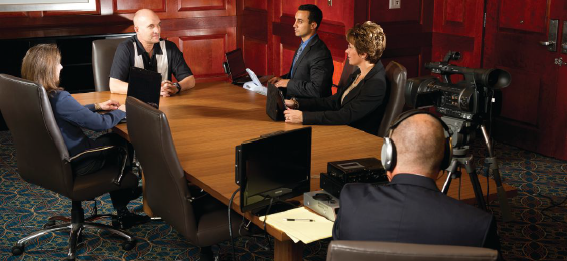Specialized Legal Videography for Trials.
Specialized Legal Videography for Trials.
Blog Article
The Role of Lawful Videography in Depositions and Trials
Lawful videography has actually arised as an essential tool in both depositions and tests, providing a complex strategy to documenting witness statements. As legal professionals progressively recognize its value, it prompts a deeper examination of just how these aesthetic records can influence juror understandings and test outcomes.
Relevance of Lawful Videography
Lawful videography plays a critical role in the documentation and discussion of depositions and trials. This specific area integrates technological abilities with legal knowledge to create a trusted document of procedures that can considerably affect case outcomes. The visual facet of lawful videography enhances the understanding of witness statement, enabling jurors and courts to observe not just the talked words yet also the demeanor, emotions, and body language of the witnesses.

The significance of lawful videography expands past the court room; it likewise plays a crucial duty in maintaining evidence for future recommendation, whether for charms or further lawsuit. Its integration into the legal procedure is important for ensuring a reasonable and accurate depiction of the truths, inevitably contributing to the quest of justice.

Refine of Legal Videography
While capturing the nuances of depositions and trials, the process of legal videography entails a number of critical actions that make sure premium, accurate recordings. A specialist legal videographer prepares by evaluating the case products and recognizing the specific needs of the deposition or trial. This prep work includes familiarizing themselves with the individuals and the context, which aids in catching pertinent information.
On the day of the recording, the videographer sets up the required devices, which normally includes high-definition cams, microphones, and correct lighting. Making certain ideal angles and audio top quality is critical, as it directly affects the efficiency of the recording. The videographer interacts with lawyers and participants to develop procedures, making certain that everybody recognizes the recording process.
During the deposition or test, the videographer diligently tapes the process, paying close interest to both verbal and non-verbal signs. legal videography. This consists of catching the behavior and reactions of witnesses and lawyers. After the session concludes, the videographer may modify the video footage for clearness and conformity with legal standards, producing an end product that properly reflects the process for future reference and usage in lawful contexts
Benefits in Depositions
The unification of videography in depositions offers various advantages that enhance the general procedure of collecting proof. One primary advantage is the capacity to record witness testaments with visual and auditory integrity, offering a more precise depiction of the witness's behavior, tone, and body movement. This multidimensional strategy permits lawyers and courts to assess credibility better than traditional written records alone.
Furthermore, videographed depositions act as a powerful tool for preserving testament. Should a witness become inaccessible for test, their recorded deposition can be played in court, guaranteeing that their evidence continues to be available and relevant. This aspect significantly minimizes the danger of losing important information that can influence situation outcomes.
Moreover, making use of legal videography advertises far better preparation for lawyers. Assessing video footage allows lawful teams to evaluate and improve their strategies, recognizing staminas and weak points in their situations. This primary benefit can cause more compelling discussions in court.
Last but not least, videography boosts the overall professionalism and reliability of the deposition procedure, instilling confidence in clients pertaining to the thoroughness of their lawful representation. By leveraging technology, attorneys can dramatically improve the performance of depositions.
Effect On Trials
In many trials, the combination of videography can significantly affect the presentation of evidence and the jury's assumption. Lawful videography records witness testaments and vital evidence in a vibrant format, allowing jurors to involve with the product on numerous levels. This aesthetic element boosts the narration element of a trial, offering context and psychological resonance that standard text-based evidence may do not have.
In addition, video recordings can function as powerful devices for impeachment throughout interrogation. When inconsistencies develop in between a witness's previous declarations and their court room statement, video clip proof provides an objective referral that can guide jurors' opinions. This immediacy and quality can bolster the reliability of a celebration's story while at the same time weakening opposing arguments.
Furthermore, the usage of videography can aid simplify complex information, making it extra easily accessible to jurors who might have a hard time to realize detailed information provided solely through verbal statement. By incorporating visuals with auditory details, lawful videography can improve retention and understanding, ultimately influencing the court's decision-making procedure. For that reason, the influence of videography in tests prolongs beyond plain appearances; it plays an essential role in forming the legal landscape and results.
Future Trends in Legal Videography
As we look towards the future of legal videography, several arising patterns guarantee to improve its function within the court. One significant fad is the assimilation of synthetic intelligence (AI) in video analysis and editing and enhancing - legal videography. AI can enhance the procedure of recognizing key minutes in recorded depositions, permitting lawyers to rapidly their website access pertinent material, thereby enhancing performance in instance preparation
Furthermore, the increase of digital fact (VIRTUAL REALITY) and boosted reality (AR) modern technologies is anticipated to change just how jurors experience evidence. By submersing jurors in a simulated environment, these innovations can provide a much find more information more extensive understanding of complicated situations, bring about more enlightened considerations.

Additionally, the enhancing need for remote depositions, increased by the COVID-19 pandemic, will likely continue. Legal videographers will require to adjust to brand-new software application and systems to make certain top quality recordings in virtual setups.
Last but not least, the expanding focus on data safety will certainly demand stricter protocols for keeping and sharing video evidence. As the lawful landscape progresses, lawful videographers need to stay abreast of these trends to keep their significance and performance in the judicial process.

Conclusion
In recap, legal videography serves a crucial function in the judicial process, improving the integrity of depositions and trials. As technology proceeds to progress, click to read legal videography is poised to more transform its role within the lawful landscape.
Report this page